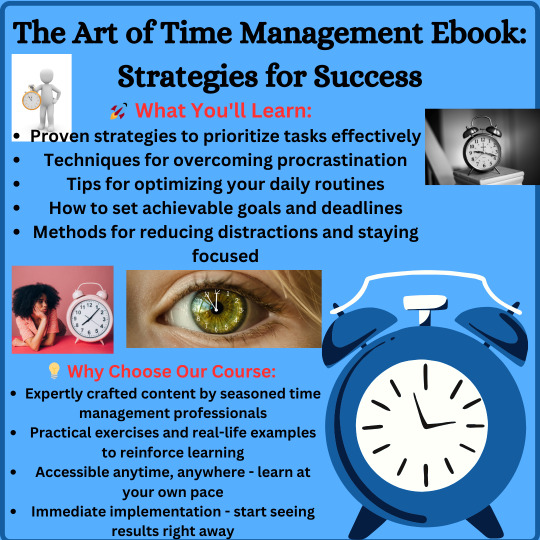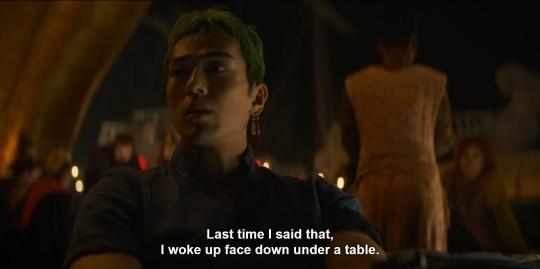#actionable advice
Text
Years ago when I had a vague interest in learning to be good at chess I read in a chess book: "it is better, far better, to have a bad plan than no plan at all". Maybe this is a well-known platitude? I don't know. I like it better than most platitudes, whenever I remember it I'm like, ah, yeah.
8 notes
·
View notes
Text
Home is a mess, don't know where to start?
trash. get every bit of trash laying around; you got used tissues, food wrappers, discarded post-its, empty bottles etc. throw it all in a trash bag, put it by the door to take out next time you go out. boom.
stains. are there coffee spills on the counter? rings from mugs and glasses? just grab a multi-purpose cleaner (spray bottles are your friend) and a rag, give it a wipe. just focus on the big visible stains for now.
if you don't have the energy to put things back in their place, or to even find a place for some, just move them around. put them into piles. you'll be amazed to find out how much tidier a room looks just moving some stuff, even if it's not actual order.
You could do a little more? Quick pass with the vacuum or sweep the floor. don't aim for perfection, just get the worst of it off.
good luck, trashbags 🖖
0 notes
Text
Mastering Time: A Comprehensive Ebook Course on Time Management

Feeling constantly overwhelmed and behind schedule? I used to be there. My to-do list overflowed, deadlines loomed, and the constant pressure left me feeling stressed and unproductive. Then, I stumbled upon the Time Management Ebook Course, and it became a game-changer.
Practical Strategies, Not Just Theory
This course wasn't filled with empty platitudes or theoretical frameworks. It provided practical, actionable strategies that I could implement immediately. From prioritizing tasks effectively to identifying and eliminating time-wasters, the course offered a clear roadmap to regain control of my schedule.
Tailored to My Needs
What impressed me most was the course's ability to cater to individual needs. It offered various techniques and tools, allowing me to choose the ones that best suited my work style and preferences. This personalized approach made the information truly valuable and applicable to my specific situation.
From Chaos to Clarity
Implementing the strategies from the course transformed my daily routine. My to-do list became manageable, and I started accomplishing more in less time. The constant feeling of being "behind" faded away, replaced by a sense of calm control and focus.
Sustainable Habits, Lasting Impact
The course wasn't just a quick fix. It equipped me with the tools and mindset to build sustainable time management habits. I learned to prioritize effectively, schedule realistically, and identify areas for improvement. This newfound awareness has had a lasting impact on my productivity and overall well-being.
Investing in Your Time
The Time Management Ebook Course wasn't just an investment in a course; it was an investment in my time and sanity. It empowered me to reclaim control of my schedule, reduce stress, and achieve more in all aspects of my life. If you're struggling with time management, I highly recommend this course. It's a practical, effective solution that can truly transform your relationship with time.
#time management#productivity#stress reduction#organization#focus#efficiency#to-do list management#time management strategies#work-life balance#personal development#self-improvement#ebook course#practical tips#actionable advice#personalized approach#sustainable habits#lasting impact#invest in your time#achieve more#British time management
0 notes
Text

#Actionable Advice#Alcohol-Free#Balance#Challenges and Successes#Dry January#Emotional Resilience#Expert Insights#Health and Wellness#good habits#body postivity#positive mental attitude
0 notes
Text
Subtle character actions
- He traced the rim of his coffee cup with his finger, lost in thought.
- She tucked a loose strand of hair behind her ear, her eyes avoiding direct contact.
- He absentmindedly twisted the ring on his finger, a silent habit he'd had for years.
- She sighed almost imperceptibly, a sign of her hidden frustration.
- He raised an eyebrow, a subtle signal of skepticism.
- She adjusted her glasses, a small gesture that indicated her nervousness.
- He tapped his fingers on the table, creating a quiet rhythm only he understood.
- She let out a soft, barely audible chuckle, a sign of her amusement.
- He folded the corner of a page in the book he was reading, a secret way of marking his favorite passages.
- She shifted her weight from one foot to the other, revealing her discomfort in the situation.
#writing#writer on tumblr#writerscommunity#writing tips#character development#writer tumblr#writblr#writing advice#oc character#writing help#character action#writeblr#writing inspiration
5K notes
·
View notes
Text
You don't need to believe that people as a whole are good or well-intentioned to be an optimist about fixing climate change.
A lot of the time, it's enough to trust in this: people hate being screwed over. And even more than that, they hate feeling screwed over.
Climate change is actively screwing over almost every single person on this planet, whether they know it or not. We just need to keep making sure that people do know that they're getting screwed over, along with all their loved ones, and who's doing it.
Spite and righteous anger will honestly do a lot of the rest.
#hope#good news#hope posting#climate change#climate optimism#life#not news#advice#me#human nature#like. obviously this is imho. but also I'm genuinely convinced that I'm right#spite and anger are powerful motivators#there are scientists who argue that anger's whole evolutionary purpose#is to keep us from being screwed over#because that's so vital to our survival#and what's more vital to our survival than a liveable planet???#channel your anger into action#do not let anyone tell you that optimism or being an activist or being part of a healthy community means never being angry#that is so so untrue#and if you find a way to channel your anger and pain and grief to do GOOD in the world#to help people#then that will also do a lot to stop your emotions from eating you up inside#hopepunk#anger#spite#optimism#hopeposting#humanity
1K notes
·
View notes
Text
Periodic reminder that unless a person specifically and clearly tells you it is okay to tell others they are trans or queer, you should err on the side of caution and assume they do not want you to tell people (especially random people!) about their transness or queerness.
You have no idea, generally, why somebody doesn't talk openly about their trans or queer status, and you have no idea, truly, how somebody might react to that information. The most progressive person out there is still capable of harbouring incredibly negative thoughts about somebody's queer status.
#lesbian#gay#bi#bisexual#trans#transgender#queer#lgbt#lgbtq#ally advice#inspired after somebody at work outed me (again ×3)#i don't care how 'safe' you assume they will be! you cannot TRULY guarantee their safety!#you are effectively gambling with somebody's safety by assuming you can out them#also even if their safety was somehow 100% guaranteed it is still not your place to dictate what others know about THEM#like it isn't your own information you are giving out. the other person is a real human being with real thoughts...#...and there are real ramifications to your actions! this is like... real life and like... real people#anyway. i'm still fucking horrified at how cool people are (at least wrt me) with outing others 🙃🫠#and it just... further reminds me that others see me as like... a thing to be talked about/over and i'm not seen as an autonomous human#maybe that's not their intentions 9/10 times but that still doesn't justify it nor does it change how i interpret that behaviour 👍#it's just dehumanizing imo to be reminded 'your comfort DOESN'T MATTER. i think you should be talked ABOUT not TO.'#clarification for the first tag: this is the THIRD time somebody has outed me. i NEVER talk about being trans to... pretty much ANYBODY irl#it's shit like this that i have to resist taking the 'doompill' over#because it's scary and dehumanizing every. single. time. i feel so fucking scared each time#because - AGAIN - i know my safety will NEVER be guaranteed because i am trans and queer
3K notes
·
View notes
Text

Writing Group vs. Group & One vs. Many Fight Scenes
Group vs. Group
To win the readers' sympathies, make sure there are more (and stronger) bad guys than good guys.
Portray a strong "them versus us" mindset. Sometimes, this is a microcosm of a larger religious, social, racial conflict.
Visual clues are often used to emphasize the divide between the two groups: black coats versus white suits, jeans against shorts, etc. They'll have different weapons, use different languages or speech patterns.
Each group will have a leader who spearheads strategies and motivates the rest. This can be an established leader like the eldet sibling, the head girl of the school, etc. Or someone who has the respect of the others and takes charge spontaneously when the situation rises.
The Point of View
Group fights are easiest to write in omniscient PoV
Otherwise, choose a PoV character who is invovled in most action, and restrict yourself to their line of vision. You can take short breaks (like two seconds after he kills his immediate opponent) to account for how his comrads are doing.
One vs. Group
1 vs. many fights where the single person comes up triumphant are fun, but hardly plausible. The key is to provide an illusion of reality.
Keep the number of opponents realistic: three, not thirty.
He would be more highly trained/have special powers than all of his opponents.
He is positioned in such as way that all of his opponents come at him from only one direction (like having his back to a wall), or he stands in a higher terrains from where he can keep an eye on all of them.
She identifies the group's leader and takes him out first.
She creates a situation which forces the group to spread out, or hits when they are already dispersed rather than tightly knit together.
He uses a weapon which can take out several opponents at once. The most effective one for this would be a machine gun, or the hero holding two swords, one in each hand.
If you want the bad guys to come at the hero one by one, some ideas:
The hero has aken p position in a place where only one villain can squeeze through at one time
The attackers don't arrive simultaneously. They come running, and each attacks as soon as they reach the hero.
The gang has a code of honor which demands 1:1 fights.
The fight is an initiation requirment where the newbie must prove themselves in 1:1 combat with all of the established members.
Some tips:
If a hero with superior arms taking on many who are unarmed will make the readers see him as a butcher, and their sympathies will be lost for good.
If he take out too many opponents at once, the readers wouldn't feel like he has really put up a fight. If your hero has a superpower that allows him to do this, establish the boundaries of this power and push the hero to the limit.
If the novel has too many 1:many scenes, it will lose its dramatic effect, and worse, seem unrealistic as you move along.
If you like my blog, buy me a coffee☕ and find me on instagram! 📸
#write up#writers on tumblr#creative writing#let's write#writers and poets#helping writers#poets and writers#creative writers#resources for writers#writing#write it#write that down#write for us#write every day#write anything#writeblr#writers#writer community#writer stuff#fight scenes#action scene#combat#writing process#writing community#writing inspiration#writing prompt#writing advice#writing ideas#on writing#writer
346 notes
·
View notes
Text




quick birthday party side quest to hook alvin up with jay's neighbor since alvin and sasha got a divorce (womp womp)
#*ts4#*ts4 gameplay#*sunday save#*sunday save gen 2#z#*alvin#*jay#*sabrina#a couple things:#1. who DIDN'T bang in a dumpster at this party 😟#2. alvin's post divorce glow up is 🥵#3. i do all of my neighborhood stories direct action meddling through jay#so canonically he's like. MESSY messy#i like to think he's one of those people who gives advice in a way that makes you go “oh god. you're right”#so he causes a lot of making up and breaking up in this save lol#okay bye!
248 notes
·
View notes
Text




usopp 10 minutes later:

#i love them so much#mugiwaras#opla#opla episode#one piece live action#one piece#usopp#opla usopp#roronoa zoro#look at my dude giving drinking advice i cannot#now i gotta draw zoro with a ridiculous drink with flamingos as well#art inspo
862 notes
·
View notes
Text
How Authors Write Fictional Wars
Some of our favorite novels include wars. They might stretch over a trilogy or build within a single book. Writing one might seem staggering, but it just takes a different planning approach. Use these tips to write a fictional war for your next story and make your readers feel like it really happened.
Foundational Factors to Consider
1. Your Opposing Sides
Wars always have at least two opposing sides. Start there and develop them before deciding if you need a third or fourth side involved. Cover details like:
What does each side want?
What would each side settle for?
What is each side’s worst-case scenario?
What is each side’s hard no? (What wouldn’t they sacrifice or do to win their cause?)
2. Who Supports the Opposing Sides and Why
As a war progresses, each side loses resources. They start running out of money, soldiers, and whatever public support they had when they started the war due to citizens losing their loved ones or sacrificing for the cause.
Your protagonist and antagonist will need to ask for help eventually. Who would support them and why?
There are numerous reasons why someone might pick one side of a war over another. Politics and economics are often the first things leaders consider. The morality behind each side is another factor.
Consider the American Revolution. Many historians believe America would have lost without France sending money, troops, food, and supplies. Why would France support a budding nation over Great Britain? People argue it was because the French:
Wanted to humiliate the British king
Wanted to hurt their British military rival by partnering with America
Wanted to weaken the British kingdom by ending the colonial taxes they benefited from
Wanted to gain power on a global standing by overcoming Great Britain and rising as America’s first ally
These reasons are great examples of what your novel could include. Another country, kingdom, or group could rise in sudden support for your protagonist or antagonist, ultimately throwing chaos into the determined path of war for better or worse.
3. The War’s Terrain
People can break into battle almost anywhere, depending on your fictional world. Your characters could fight:
On land
On sea
In space
In the air
Underground
Online
Some terrain also comes with other considerations. If your war happens on an ocean, will storms and hurricanes affect battles or the ultimate outcome? How will the soldiers and leaders on both sides deal with the weather?
Note these possibilities as you plan your novel. You can add them in as background or crucial plot devices once you have a skeletal structure in place for your story.
Need help remembering everything you’ve imagined? Try making a map and keeping it wherever you write.
4. What Would Make Each Side More or Less Powerful
There’s always something that could give one side an advantage over the other. It’s often in an unexpected way, although you could make the advantage a goal. The bad guys might feel confident in their ability to win, but they have a secret mission to develop a new weapon just to give them a greater advantage.
Other factors to consider would be one side or another doing something like:
Discovering or enacting a magic system
Eliminating a crucial resource their enemy depends on
Removing funding that makes their enemy able to fight by befriending or overcoming their enemy’s financial backers
Changing the positive or negative public perception of the other side’s reason for fighting to change national morale
Doing something that makes one side’s leaders more or less moral (which could change public perception, the soldiers’ vigor, the leadership’s advisory team together, etc.)
6. What Kinds of Conflict You’ll Write
There are two types of basic conflict you’ll likely write when navigating a fictional war. You may not need both if your story is shorter, but adding both makes the plot more realistic.
First, there’s external conflict. You’ll have at least two opposing sides on some kind of battlefield, sneaking around on spy missions, planning surprise attacks, etc.
Secondly, there’s internal conflict. Soldiers might start fighting amongst each other, people in leadership positions could lose trust in each other, citizens might turn on their country’s cause for one reason or another, etc.
7. What Weaponry Your Characters Will Use
The weapons used in your war depend on numerous factors. It will draw from the genre you’re writing, the time period your story takes place, the advancements made in each civilization’s weaponry prior to the war, and any advancements made while the war goes on.
Examples of these could be:
Guns
Swords
Bows
Bombs
Drones
Armed ships
Armed space ships
You should also consider if one side’s weaponry is more likely to change during the course of the war. That’s more plausible if your story or characters change locations where regional cultures use different weapons. Also if the war spans years, people will naturally develop new weaponry during that time.
If you want extra details to daydream about, think about which weapons will become outdated during your story. Some will prove less useful due to complicated usage or cleaning. They also may not work, like if your science fiction characters follow their enemy underwater, but their laser guns require a dry atmosphere to function.
Include Emotional Plot Arcs
Writing always involves some kind of emotional work that results in a plot arc. It keeps the reader engaged by evoking their core feelings. That’s what makes a novel different from a textbook (in a very basic sense).
Work on details like these to find what emotions will be most present and relevant to your story:
Your overall theme
Your characters and what they experience
The action your characters will go through
How the above action will change your characters by affecting their loved ones
What your characters’ goals mean to them emotionally
If your characters’ will undergo things that change their perception of their world, leaders, country, or themselves
You don’t need all of these things to have an emotional plot arc, but they’re relatable human elements that can drive your plot right into your readers’ hearts.
Avoid Some War Story Tropes
Tropes have a bad reputation that I don’t think is entirely deserved. People recognize them as overdone stereotypes, but sometimes they’re useful.
When you’re writing a war, you’re going to have necessary tropes like:
The hero
The unit or squad
The antagonist
What they undergo and who they become is how you make them fresh concepts for your readers.
Some tropes aren’t helpful because they’re what readers expect from every story. If you give them what they expect, your story isn’t as engaging (unless you get the occasional reader who exclusively reads war novels and never tires of overdone tropes).
Keep these in mind as things to avoid, unless you have an ingenious way to make them a brand-new experience:
One soldier dying in another’s arms
A character dying by going out “in a blaze of glory”
Characters using guns in ways that are obviously wrong (i.e., firing more bullets than the gun-type/model holds)
Getting military rank incorrect (if your characters exist in a real-world, already existing military structure)
Injury-proof characters (even your protagonist will eventually encounter some physical harm, whether it’s illness in bad weather or getting shot on a battlefield)
You can check out this great resource to discover more tropes to avoid/consider as you draft your plot outline.
-----
If it feels like writing a war over the course of a book or a series is challenging, you’re not alone. There’s a lot to consider to make it have an engaging flow.
Keep notes on things like these to develop your story as much as possible before starting your first draft. You can always go back and add or edit things out as needed while developing it. Writers do this all the time—you don’t need to get any manuscript perfect on your first try.
#writing war#writing warfare#writeblr#writing advice#writing tips#writers of tumblr#creative writing#writing#writing inspiration#writing community#writing help#writing resources#writing action#writing conflict#writing batlles
575 notes
·
View notes
Note
do you have any advice for players who are interested in ttrpgs that arent d&d but can't find dms? i can get my friends to play news systems when i run them but sometimes i want to play! but my other dm friends just want to keep running ultra homebrewed barely recognizable versions of 5e
Yeah! There are a couple of approaches I'd recommend in this case.
Since you have other DM friends, you could go with the classic quid pro quo. If there's a specific type of game they're interested in being a player in, or a specific character they're excited to play, you could offer to run a game for them in exchange for them running a game that you'd like to be a player in. Usually this should be limited to games that are relatively fixed in scope. Neither of you is going to want to commit to running an unbounded campaign, but something that's gonna be half a dozen sessions or less feels more reasonable.
With the type of DM who runs 5e-in-name-only this is definitely high risk, high reward. On the one hand, the experience of running another game might show them the joy of running a game that doesn't need to be completely rewritten to do what they want, and you could gain a DM friend who is happy to run other systems. On the other hand, they might just completely house rule and homebrew whatever new system you persuade them to run, so that it's that game in name only as well, which is a disaster. And that's assuming you can persuade them to try at all, even with the bribery of running something for them.
The second approach is what I have called the Grinch technique: if I can't find a reindeer, I'll make one instead. I am regularly converting players to GMs, it is my not particularly secret agenda when I run games.
I find the biggest thing I can do to make this happen is to just be very frank about what I find to be the tools of GMing. Players often have a very grandiose view of GMing: the GM who preps tirelessly and meticulously plots a story and knows every detail of the world. I am very clear that I don't do that. I prep scenarios with a fragile status quo, and I react to how players interact with it. When it comes to obstacles, I don't make solutions, I make problems, and then I just handle how the players approach them. Most of what I do is reacting.
I tell this to all my players, in part just to calibrate their expectations, but if players show an interest, I'll invite them further in. I'll tell them about what documents I maintain over a campaign, what my prep notes look like, little techniques I've learned to make GMing easier. And I'll tell them about games I think they'd be interested in. And when I feel like they're really starting to see how everything I do is really not that difficult, I'll start nudging them in the direction of GMing.
The last approach is to just find online spaces dedicated to this kind of thing. I prefer playing in person to online, which is why I recommend the other two first, but the third approach is definitely easiest. @anim-ttrpgs runs a great book club discord for running indie games that you can check out if you're interested in that! Dedicated discords for the game you're interested in playing almost always have a looking for group channel as well.
Hope some part of that helps.
105 notes
·
View notes
Text
The Yadda-Yadda
A lot of writing is developing your intuition. Luckily, you’re already working on this whenever you read or watch anything. However, one situation your intuition might be yelling that you aren’t hearing is the “yadda yadda”.
This is when you kind of skip through action or dialogue to get to a different portion in the same scene. It looks like, “She exited the car, waved to Dave and walked inside. Then she found Stacey. “Hey, Stace.” "
It can mean you’re getting impatient with your own scene and just want to get through it to another part, or you’re bored of writing it. This may mean that the scene is running too long, or is actually unnecessary altogether.
It’s good practice to listen to what you feel when you’re writing—if you’re feeling impatient or bored of a scene, a reader may feel the same way. Try seeing if you can change something to make the scene more interesting, or ask yourself if it really serves a purpose. If you absolutely had to take it out, what would you do? Or do you need to do anything?
That being said, don’t listen to the voice that tells you a scene you’re writing is horrible or that you’re a bad writer, that’s not your intuition talking, that’s just a mean voice. Learning intuition is as much about learning what to listen to as learning what not to listen to.
Good luck!
#writing#creative writing#writing community#writers#screenwriting#writing inspiration#books#filmmaking#writing advice#film#writing intuition#yadda yadda#writing description#writing action#writing scenes#writing block#writer on tumblr#writing help
99 notes
·
View notes
Text



















THE ROOKIE-
6.03 ➦ Trouble In Paradise
#chenford#chenfordedit#the rookie#therookieedit#tim x lucy#tim and lucy#jesuis-assez edits: chenford#jesuis-assez edits: the rookie#He really took care of her in this episode. [like always]#From giving her advice -> distraction -> keeping an eye on her -> letting her sleep in -> the trophy -> reassurance.#Just doing everything he could to be there for her and support her#to keep her from burning out. If she was ever to crash this episode... or to have her hopes dashed. He would be there to catch her.#and he did. “I'm sorry for disappointing you.” “You could never disappoint me.” Giving her the words she needed to hear in that moment.#He gave her what she needed in this episode and more.#More importantly... He knew what she needed and he knew how to be there for her. He is in tune with her.#His understanding of her runs deep and flows through his actions just how devoted he is to her.#Perhaps Lucy wore the necklace he gave her to the oral exam... Not just because it's from someone she loves but#So she could feel him there with her for support. As he has supported her from the moment he found out she was working towards this.#Even when it was killing him inside to do so because of his related trauma.#I don't always communicate through the tags... but when I do--- you can't shut me up 🙃 [and they become quite lengthy]
105 notes
·
View notes
Text
instead of, "Suddenly-"
but before [Character] could [verb], ACTION!
[Character] was about to [verb] when ACTION!
but no sooner had [something] than ACTION!
but just as [something boring], ACTION!
BANG!/CRASH!BOOM! ACTION! "Character dialogue starting some sentence about–" ACTION!
Character's internal monologue starting some senten- ACTION!
Narrator starting some- ACTION!
...ACTION!
credit:@officialtheonite
744 notes
·
View notes
Note
Mr. Michael Edgeworth do you have advice on gendertransing
idk if you want like. actionable advice so here is my advice for all trans people:
live
do what makes you happy
remember that you have more in common with other trans people than you think even if their identities are different
try and find a community of other trans people that isnt online
you dont owe gender conformity to cis people OR other trans people
#asks#message to all trans ppl: stay alive#if you want actual actionable advice on like. social transitioning all i can speak to is a binary trans man experience btw
62 notes
·
View notes